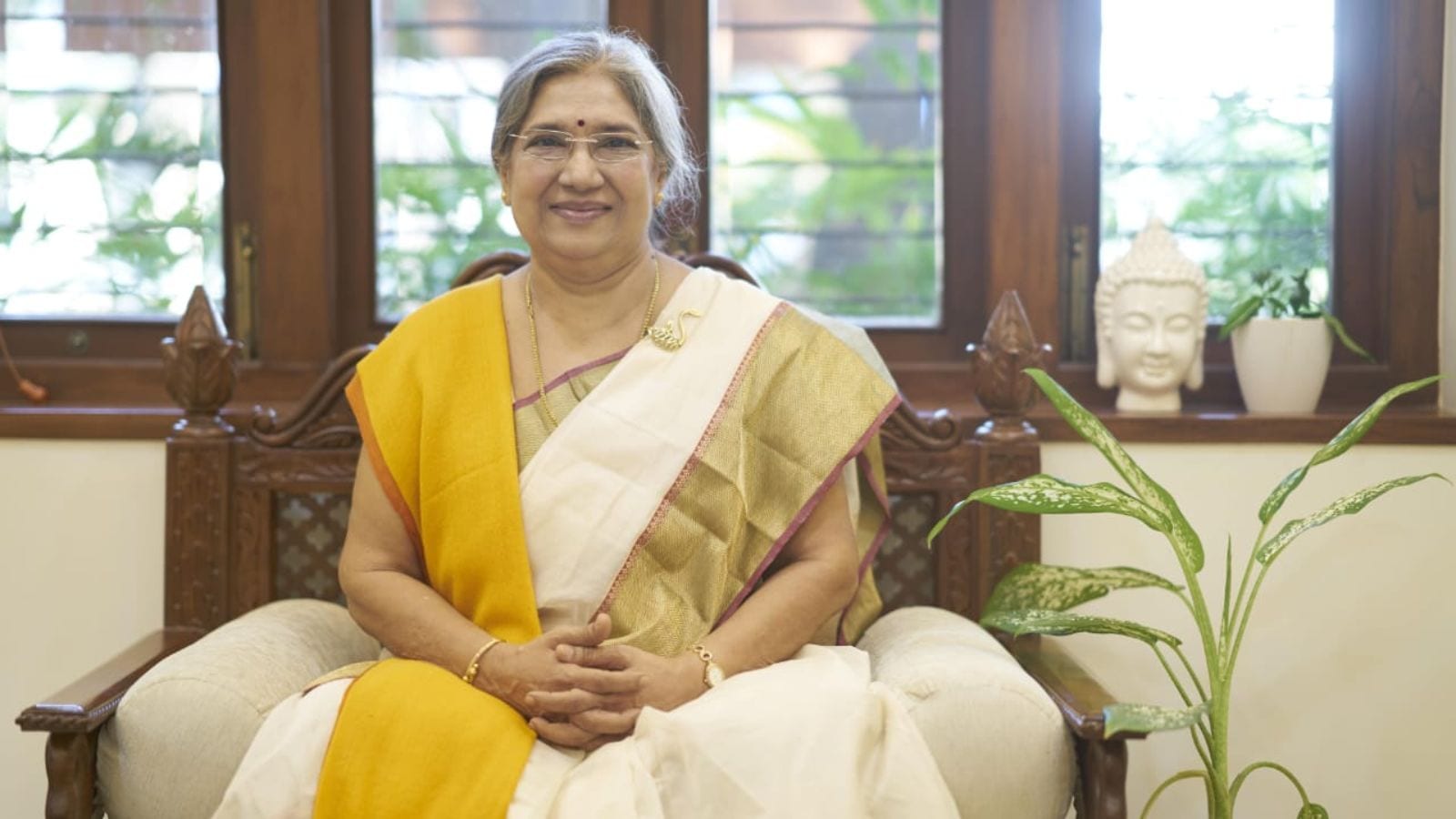YogMantra | Want To Be A Good Yoga Teacher? Here Are The Qualities That Matter

Last Updated:May 31, 2025, 08:31 IST
A student may not remember your Sanskrit verses or the jargon you use, but they will always remember how you made them feel
Dr Hansaji Yogendra, Director of The Yoga Institute, Santacruz, Mumbai, says inner stillness, compassion and humility are absolute musts for a good teacher. (News18)
At a Yoga centre where I was attending a programme some months ago, I happened to encounter a person from Russia as he was exiting the classroom. Red-faced, he was walking out in a huff, preparing to pack his bags and leave. He let loose when I asked what had happened: “The teacher thinks she’s an enlightened soul and so superior! I find people here are so rigid about what’s wrong and right. Worst is they themselves don’t practice what they teach!”
It was a long list of complaints. It occurred to me that students were not content to just learn Yoga poses and practices from teachers — that their teachers needed to measure up in other ways, too.
So, what are the qualities that make a successful Yoga teacher? We approached veteran Yoga teacher and guru, Dr Hansaji Yogendra, Director of The Yoga Institute, Santacruz, Mumbai, for answers. Here are edited excerpts from an interview.
The Inner Making
A good Yoga teacher is not just someone who knows asanas, pranayamas or the scriptures – she or he must embody the practice. Inner stillness, compassion and humility are absolute musts.
I always say to teachers — be still. Stillness requires courage. The ability to be quiet and to observe, without judgment, reflects an inner strength.
The Inner Motivation
The motivation to teach must come from a place of seva — selfless service — and not from a desire to impress, preach, or seek recognition or validation. A true teacher doesn’t teach in order to be seen, but rather to help others see themselves more clearly. Empathy, kindness, and genuine human connection are needed.
I often remind new teachers that people don’t care how much you know, until they know how much you care.
Knowledge And Skills, but Also Own Practice
A Yoga teacher should understand all three — the body and how it functions, the mind and how it behaves, and the spirit and how it seeks.
More importantly, they must remain dedicated to their own practice. All of Yoga is abhyasa —so, practice, practice, practice! The teaching carries authenticity and depth only if the teacher is first a sincere practitioner.
Perfection is a myth — but progress is essential. And it is only through consistent sadhana that skills transform into wisdom.
Your Class Should Be A Space of Peace, Not Pressure
For this, some do’s are:
Do practice what you teach. Keep learning. Respect each student’s unique journey. Create a safe and inclusive space where everyone feels seen and supported.
And some don’ts are:
Don’t impose, compare, or preach. Teaching is about guiding and about not showing off — remember, there is a difference between teaching and preaching.
Inspire through your own lived experience; don’t just share information or bookish knowledge.
And always remember: anything that doesn’t bring psychological balance is not Yoga. Let your class be a space of peace, not pressure.
How To Be More Confident
Confidence comes from clarity and consistent practice. When you engage in daily sadhana and witness the subtle shifts in your own body and mind, you begin to teach from a place of truth. And that truth builds authentic confidence.
Yoga doesn’t make your life better; Yoga makes you better at life. Live Yoga fully, and the confidence to teach will arise naturally and effortlessly.
The Test of A Good Teacher
A student may not remember your Sanskrit verses or the jargon you use from anatomy, but they will always remember how you made them feel. A good teacher helps students feel seen and safe, and inspired.
The real test? When a student begins to practice on their own—not out of pressure, but out of joy. That’s when you know that Yoga has truly happened.
Be Morally and Ethically Sound
You have to be morally and ethically sound, only then can there be true spiritual progress. That moral compass can only develop when all three pillars of Yoga — the body, the mind, and the soul — are nurtured through a balanced integration of Physiology, Psychology, and Philosophy.
A good teacher must be well-versed in all three dimensions of Yoga — Physiology, Philosophy, and Psychology. At The Yoga Institute, we emphasise all three. Here, Yoga is not confined to physical postures, but is embraced as a way of purposeful living. The emphasis is not merely on flexibility of the body, but on cultivating stability of the mind, along with clarity and inner resilience. The philosophy taught is not rooted in rigid beliefs, but in practical wisdom that can be meaningfully applied to everyday life.
The author is a journalist, cancer survivor and certified yoga teacher. She can be reached at swatikamal@gmail.com.
- First Published:
[title_words_as_hashtags




